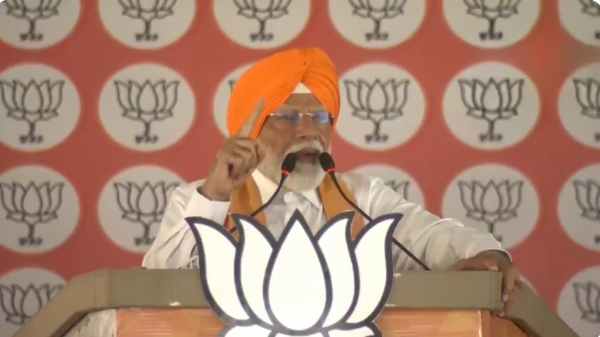Prime Minister Narendra Modi’s recent remarks during a public rally in Patiala, Punjab, concerning Kartarpur Sahib have ignited a flurry of reactions, drawing attention to both historical nuances and contemporary political implications. Modi’s assertion that the Congress party’s actions during partition hindered access to Kartarpur Sahib has fueled debates on the legacy of partition and the politicization of historical narratives.
Modi’s statement, “Congress did the partition of the country in such a way that for 70 years, we had to look at Kartarpur Sahib through binoculars,” has prompted a closer examination of the historical factors shaping the accessibility of religious sites post-partition. While it’s undeniable that partition had a profound impact on the movement and access to religious shrines, attributing the barriers solely to the Congress party overlooks the complex interplay of colonial legacies, communal tensions, and geopolitical realities.
The Kartarpur Sahib corridor, inaugurated in 2019, was hailed as a significant step towards fostering religious harmony and facilitating pilgrimage for Sikh devotees. However, Modi’s remarks have reignited discussions on the broader implications of partition and its lingering effects on Indo-Pak relations. By invoking hypothetical scenarios related to the Bangladesh Liberation War, Modi has sparked controversy, with critics arguing that such statements oversimplify the complexities of historical events and international relations.
Opposition parties have seized upon Modi’s comments, accusing him of exploiting historical grievances for political mileage. They argue that by framing partition as solely the fault of the Congress party, Modi seeks to deflect attention from his government’s policies and failures. Historians caution against the selective interpretation of history, emphasizing the need for a nuanced understanding of partition’s causes and consequences.
While supporters of Modi commend his efforts in inaugurating the Kartarpur Sahib corridor, they also stress the importance of acknowledging the broader historical context. They argue that the corridor symbolizes a rare instance of cross-border cooperation and religious harmony, transcending the divisive narratives of partition politics.
As political tensions escalate, Modi’s remarks serve as a reminder of the enduring legacies of partition and the challenges of reconciling divergent historical narratives. While the Kartarpur Sahib corridor remains open for devotees, the controversy surrounding Modi’s comments underscores the complexities of addressing historical grievances in contemporary politics and the imperative of fostering inclusive nation-building efforts.
In conclusion, Modi’s comments on Kartarpur Sahib have sparked a multifaceted discourse, highlighting the intersection of history, politics, and diplomacy. As India grapples with its complex past and seeks to chart a path forward, it is essential to engage in constructive dialogue that promotes understanding and reconciliation while confronting the challenges of historical interpretation in the public sphere.



